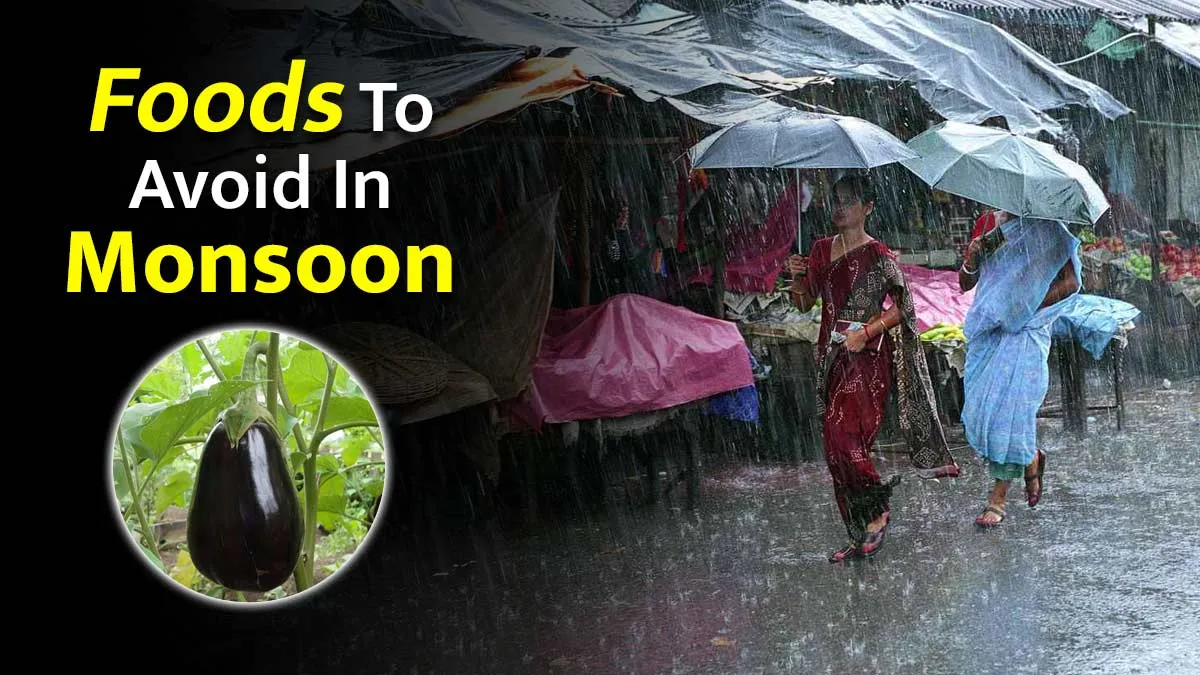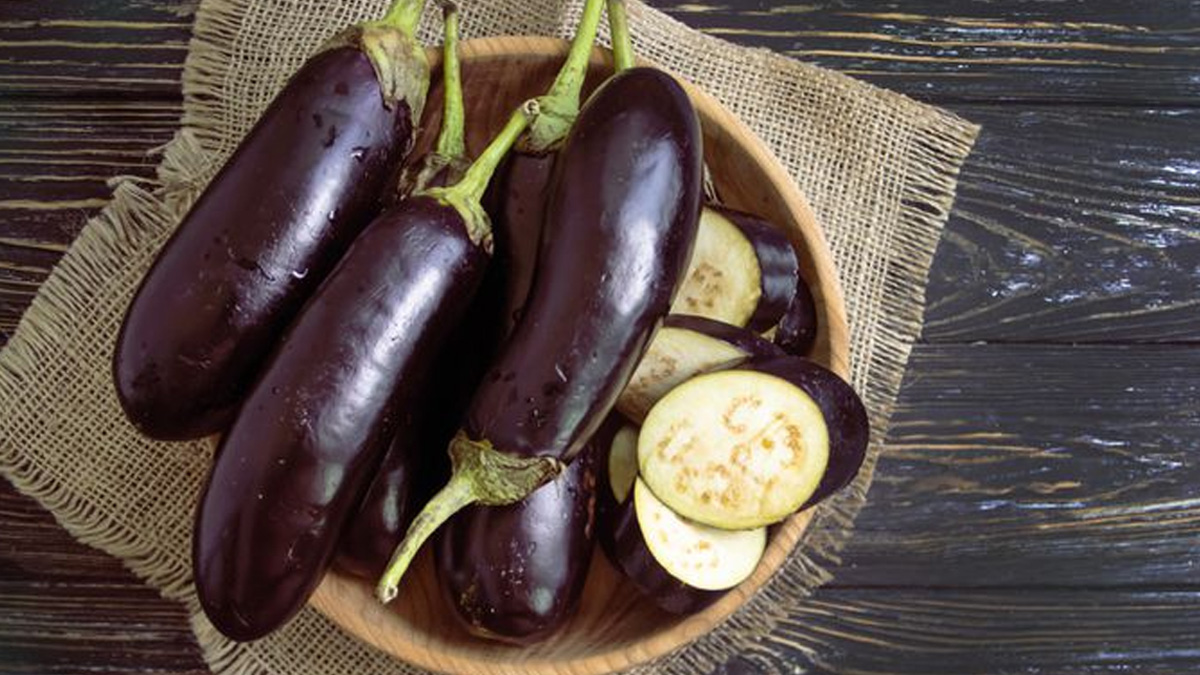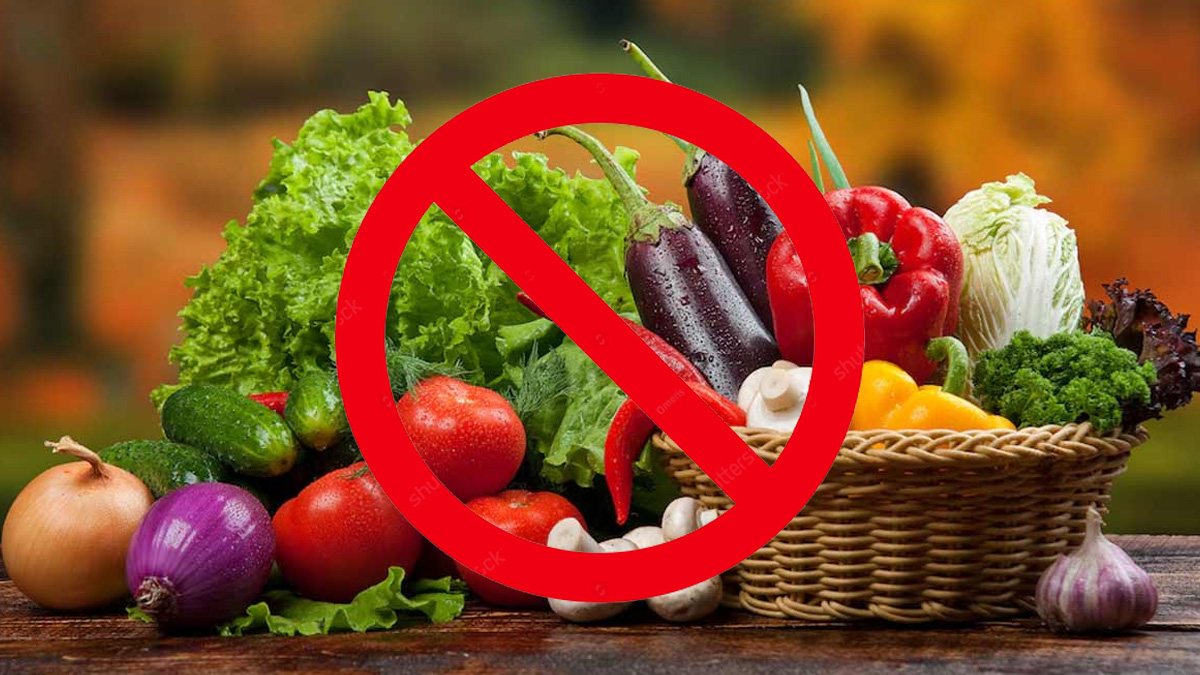
The rains provide welcome relief from the heat, but higher food poisoning risks come with them. In the monsoon, the excess moisture in the air provides the ideal breeding ground for bacteria, fungi, and other pathogens on our food. That's why it is very important to be meticulous about your diet and how you prepare your food at this time of year. From vegetables to street food, some foods are more likely to lead to stomach discomfort or infections if handled improperly. So, is eating brinjal (eggplant) safe during the rainy season? Let's see what the experts have to say.
Table of Content:-
Can You Eat Brinjal During the Rainy Season?![brinjal during rain monsoon 1 - 2025-07-01T155025.044]()
Rakshita Mehra, Clinical Dietitian and Nutritionist, Delhi, explains that brinjal absorbs and holds water during the monsoon season. Such retained water provides a fertile ground for spores of fungi and bacteria. Therefore, brinjal gets more chances to harbour pathogenic germs on rainy days, leading to food poisoning and stomach infection.
But brinjal is not completely safe to consume. Here's the way you can have it safely:
- Inspect quality and freshness while purchasing.
- Clean thoroughly with running water.
- Follow hygiene while cutting and cooking.
- Keep in a cool and dry place to avoid moisture accumulation.
- Cook at the appropriate temperature to kill germs.
- If these are not followed, consuming brinjal may cause gastrointestinal disturbances or even food poisoning.
ALSO READ: Fitness Expert Names the 5 Worst Sugar Alternatives for Your Health
Other Foods to Avoid in Monsoon![foods to avoid in rain 2 - 2025-07-01T154739.288]()
Besides brinjal, a few other foods should ideally be avoided or treated with special caution during the rainy season:
- Cruciferous vegetables: Cauliflower and cabbage have a tendency to capture dirt and insects, so they are more difficult to wash.
- Green leafy vegetables: Spinach and methi (fenugreek) may develop worms and bacteria as they retain moisture.
- Mushrooms: They are susceptible to fungal contamination because of the high water content.
- Street foods: Particularly raw chopped fruits, salads, and juices, as they are mostly left in open air and unhygienic conditions.
- Seafood: Fish and shellfish decay fast in the rainy season's humid weather and can lead to dreadful food poisoning if not fresh.
Why Is Food Safety So Important During Monsoon
The monsoon period is famous for an increase in waterborne and foodborne diseases. A study that has been published in the International Journal of Food Microbiology points out that high humidity and temperature during the rainy season greatly increase the bacteria and fungi on fresh fruits and vegetables. The study suggests proper washing, storage, and high-temperature cooking to minimise infection risks.
Tips for Safe Eating during the Rainy Season![tips for safe eating in monsoon 3 - 2025-07-01T155023.597]()
- Wash vegetables and fruits thoroughly under running water at all times.
- Use raw or uncooked food as little as possible.
- Heat food at high temperatures to destroy germs.
- Keep food in tight containers to avoid moisture and contamination.
- Purchase fresh fruits and vegetables in small lots to minimise spoilage.
ALSO READ: Can Taking Steroids Give You Acne? Causes, Symptoms, Treatment and Prevention
Conclusion
Brinjal is not totally off-limits during the rainy season, but it has to be handled with a little extra care. Check for freshness always, ensure hygiene, and cook well. The same applies to other high-risk foods. By taking these easy precautions, you can indulge in the season's flavour without fear of falling ill.
Also watch this video
Read Next
Is Ice Apple (Tadgola/Nungu) Safe for Diabetics? Expert Shares Portion Control and Its Nutrition
How we keep this article up to date:
We work with experts and keep a close eye on the latest in health and wellness. Whenever there is a new research or helpful information, we update our articles with accurate and useful advice.
Current Version


